Soundboard
The Steinway & Sons Podcast
Bill Murray
“‘The Dark Side of the Moon’ was an expression of political, philosophical, humanitarian empathy that was desperate to get out,” Roger Waters states at the opening of the “Classic Albums” documentary on Pink Floyd’s magnum opus. The same could be said to characterize the body of work of Everyman goofball cum American Treasure Bill Murray.
A few days following a World Series victory for the Chicago Cubs where Murray was an essential celebrant, he was to be found at the New York Yacht Club alongside a classical trio (Mira Wang, violin; Jan Vogler, cello; Vanessa Perez, piano) for a recital in the Model Room Musicales series which paired music of Bach, Beethoven, Bernstein, Gershwin, Mancini and Piazzolla (performed by the trio) with readings from Capote, Cooper, Hemingway, Thurber, Twain and Whitman (performed by Murray).
Murray inexplicably found time the previous afternoon, following rehearsal with the trio and en route to 30 Rockefeller Plaza to host Saturday Night Live, to drop by Steinway Hall and speak with Soundboard.
[Below is an edited transcript of the podcast:]
Ben Finane: What music inspires you?
Bill Murray: I love the music that the gang has collected here: Bach, Gershwin, Henry Mancini, Bernstein. I like gospel music, too. When I gotta get a lot of work done at the house, I put on the gospel channel. It makes me push things around a little faster.
Who do you like to read?
I do like John Steinbeck very much. I like Mark Twain a whole lot. I like Camus. I like this South African fellow who wrote A Story Like the Wind [Laurens van der Post].
Talk to me about what you like from Twain, since you were recently awarded the Mark Twain Prize.
What I like about Twain is that he didn’t like a lot of smoke blown at him. I’ve been reading some letters to him, and his replies to the letters are really quite… it sounds like myself talking, under my breath, but he’s saying it out loud and he would write it in letters back to people, when he did write them back.
I love the sequence in Huck Finn where Tom Sawyer makes up an imaginary world inside of a cabin that has absolutely no bearing on the story at all, but it’s so damn funny he left it in. And I’m reading this going: ‘This is not taking us anywhere!’ But he was having so much fun writing it, and he just put it in ’cause he liked it and it was fun. People don’t do that so much anymore.
You like that sort of absurdity — absurdity being something that shows up in your work?
Well Twain doesn’t usually do that! It was just an extraordinary thing in one of the Great American Novels — if not the best — and to do that and say, ‘And by the way, it’s not beyond me to have a little fun.’ He really did have fun when he wrote!
And I don’t know if I’m absurd or not. I’m probably more ridiculous than absurd, but when you’re having fun, it appears at all points of the compass and you can go any way you want to go.
How would you make a distinction between ridiculousness and absurdity?
Well, a long time ago people would say: ‘Bill, you’re absurd.’ But now they say: ‘Bill, you’re ridiculous.’ I guess it’s just the time we live in.
Ben Finane & Bill Murray
Vanessa Perez, Jan Vogler, Mira Wang & Bill Murray
You’ve specialized, over the course of your career, in characters who are on the mend, characters who are fighting themselves, fighting pain of loss, depression, cynicism, trying to become more involved in their lives, more involved in their world. I see it in your comedy and in your drama. How did that develop? Or would you agree that it’s even a theme?
Well I’m not choosing a theme, I think that’s probably just myself. [Laughs.] I think that’s probably just the way I am, you know: trying, really trying, and mostly failing… and I’ve got myself in a situation where a certain amount of success affords you a way of living where you can fail to examine, fail to question. So if you question it at all then you go ‘Oh God, I’m full of it. I gotta get to work here.’ And that’s kind of the way my life is.
It’s about getting past that failure and getting to work?
It’s not getting past the failure, it’s just seeing that most of the time, we fail. We have a false sense of who we are and what we’re doing and who we really are and that you have to just keep trying and be very tough on yourself — not that I am, but I aspire to be tough on myself and force myself to see the flaws. And then, if you can see the flaws, and see the false sense of yourself at the same time, then something opens up. There’s an opportunity for seeing, for a vision of something.
Is that a truth that you look for, something you’re pushing toward in acting?
Well, yes, I think I’m looking for it in life, you know. If you’re doing it in acting, in a way it can be easier because you’re trying to behave in a certain way that is a habit of your life and your personality and whatever being you might have and you’re using it to portray a person who doesn’t really exist — but you’re using yourself to draw that person.
‘I’ve got myself in a situation where a certain amount of success affords you a way of living where you can fail to examine, fail to question.’
Are there different challenges that you face when you’re writing than when you’re acting?
Well, yes. When you’re writing — you mean in print?
Yes.
Well, yes: you have to use more evocative words. When you speak, you can use your rhythm. Your rhythm is there, your accents are there, your pitch is there. And it’s difficult to get that pitch in print in two dimensions. The third dimension gives you a lot more possibility. I did write a book once and I sort of told the stories with my voice, and then when I saw it — the transcription of it written out — it was very soft, it was bland. And I thought ‘Why is that so weak?’ And I realized all of what I was just talking about is gone from it, so then you have to find words and phrasing that make up for the lack of your actual voice. You have to find your voice in letters.
I wonder, too, if in writing that improvisational element is harder to keep?
I think when you put your hands on a real keyboard and you connect into a real keyboard, something happens: it’s not so much improvising as it is letting something go and not trying to control it with your brain. I really sort of write with my body, I guess. I mean, if I don’t have my fingers involved with the actual typewriter, it’s not the same. Or a pencil. There’s gotta be something physically connecting you to this energy that’s moving around.
It’s back to getting in a rhythm, getting in a flow.
The rhythm is there. You have to catch it.
The reading selections that you’re performing are all from titans of American letters — and they all have very different rhythms. Do you approach each author differently when you’re looking to give voice to their words?
Well you have to. Obviously, if you’re reading from Huck Finn you have to speak in some sort of dialect. And if you’re reading James Fenimore Cooper, you have to sort of… look to the horizon [laughs] or something. And Capote is just a guy who is a wide-eyed observer, seeing the behavior of a faun in the city — a child, a girl. And Hemingway, he was on the make, on the smarts. He was trying to figure out things, observe things: make sense of the way things went, in that Continental way.
And James Thurber’s “If Grant Had Been Drinking At Appomattox”?
Thurber’s funny. He’s definitely funny. He’s one of the really funny guys and could really write it. What we’re reading of his, though, was meant not to be read aloud. So we’re going to denude it of certain things that were meant for the reader as opposed to the listener.
Have you ever written fiction or poetry?
Well I wrote a lot of poetry when I was a little boy, but I haven’t since. And fiction [laughs]: I write fiction every day, ’cause I’m just a natural liar, a terrible person.
Did you memorize a lot of poetry growing up?
No, I didn’t, but I know someone who did — that fellah over there [indicating comedy writer Jim Downey]. He can read aloud to you. Jim, will you read? Jim Downey, he can read some poems. He’s good on a long car drive, ’cause he’s got the Greeks, and he can really go. And you think you’re fallin’ asleep at the wheel now, wait’ll he gets going.
‘It’s not getting past the failure, it’s just seeing that most of the time, we fail.’
Do you feel a similarity between musical improvisation and the improvisation you bring to acting?
Well, I’m working with these big shots now [indicating the musicians], and it’s funny the way they talk, because we all sort of feel the same thing. Their term for it is not the same as mine, but you feel it. You see it and you feel it, and when you got it, you got it. When you don’t, we all know. It’s some kind of math. And improvisation is a kind of slow addition. I give you a number and you give me one back and we’re just keeping track of where we’re going.
The ‘Yes, and....’
Yeah! So except for the different outfits they wear and the cases they carry on their backs, we’re speaking some kind of language that’s similar. There’s some sort of unspoken language that we understand and use to communicate.
Bill, thanks for talking to me. I appreciate it.
OK, cool. I appreciate it. I hope my answers were correct.
keep listening...
-

Soundboard — Kris Davis
Jazz pianist and Steinway Artist Kris Davis takes us through her process, her love of Herbie Hancock, and what she gained from listening to other instruments.
Read More -

Soundboard — Yulianna Avdeeva
Chopin International Piano Competition winner and Steinway Artist Yulianna Avdeeva discusses her most recent recording project for Pentatone: Dmitri Shostakovich’s Preludes and Fugues, Op. 87.
Read More -
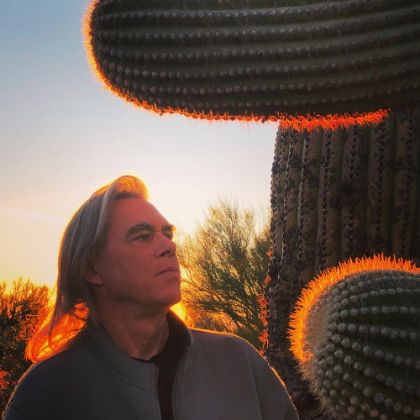
Soundboard — Steve Roach
Ambient and electronic music composer Steve Roach discusses his musical philosophy and process.
Read More -
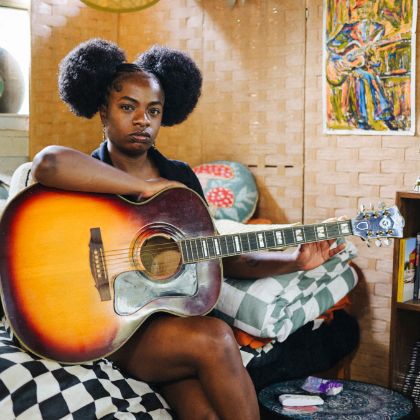
Soundboard — Sunny War
The songwriter Sunny War talks about her eclectic influences, when less is more, her Americana dream, and taking inspiration from her racist neighbors.
Read More -

Soundboard — Nels Cline
Guitarist Nels Cline, live from Big Ears Festival, talks about having no fixed voice, Wilco, pretension, and going down with the set list.
Read More -
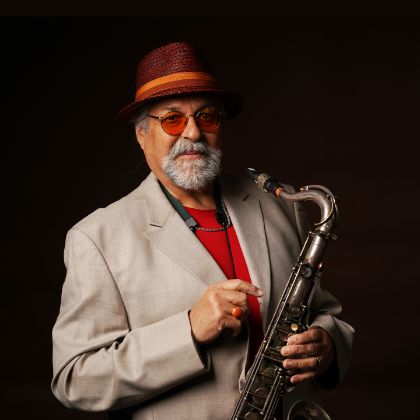
Soundboard — Joe Lovano
Saxophonist Joe Lovano discusses influence, tone, sound, improvisation — and what's in a name.
Read More -
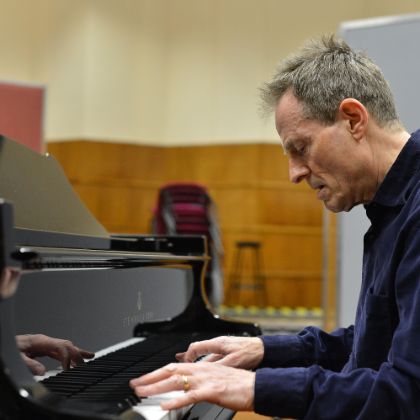
Soundboard — John Paul Jones
Steinway Artist John Paul Jones, live from Big Ears Festival, talks about his influences, his sound, his process and his myriad music projects beyond Led Zeppelin.
Read More -
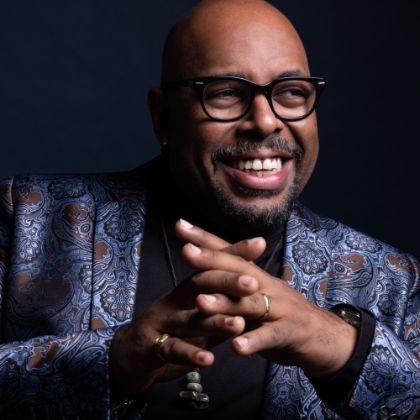
Soundboard — Christian McBride
Jazz bassist Christian McBride, live from Big Ears Festival, talks post-bop, remaining a bass-player-for-hire, bass-on-bass action, preparation, and jazz as democracy. Steinway & Sons is a sponsor of Jazz House Kids.
Read More -
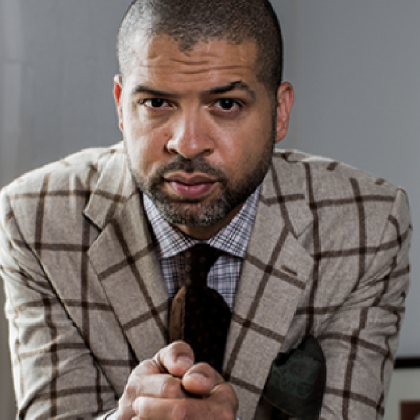
Soundboard — Jason Moran
Jazz pianist and Steinway Artist Jason Moran, live from Big Ears Festival, talks hip hop, the next generation, the algorithm, Monk & Duke, visual art, and creative approach.
Read More -
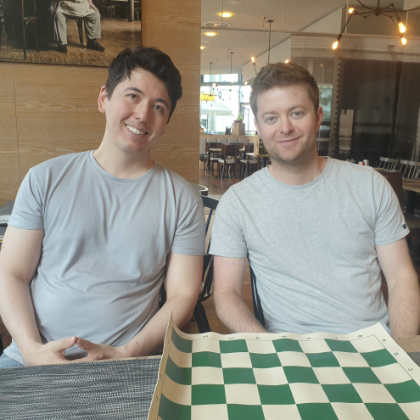
Soundboard — Chessbrah
Eric Hansen and Aman Hambleton, aka Chessbrah, talk techno and chess and what makes Magnus Carlsen the GOAT.
Read More